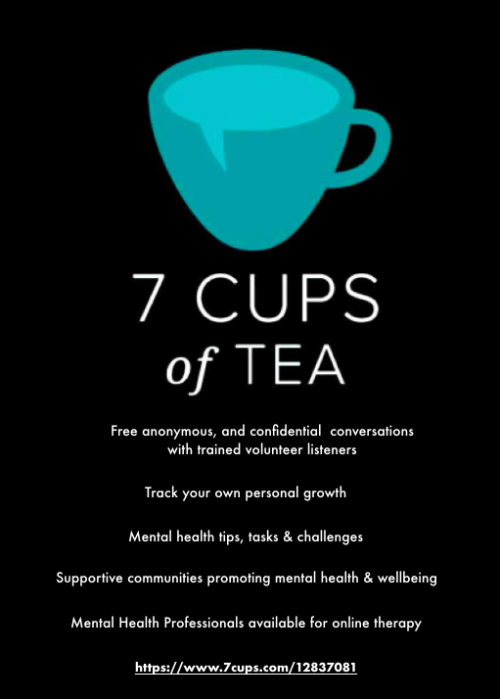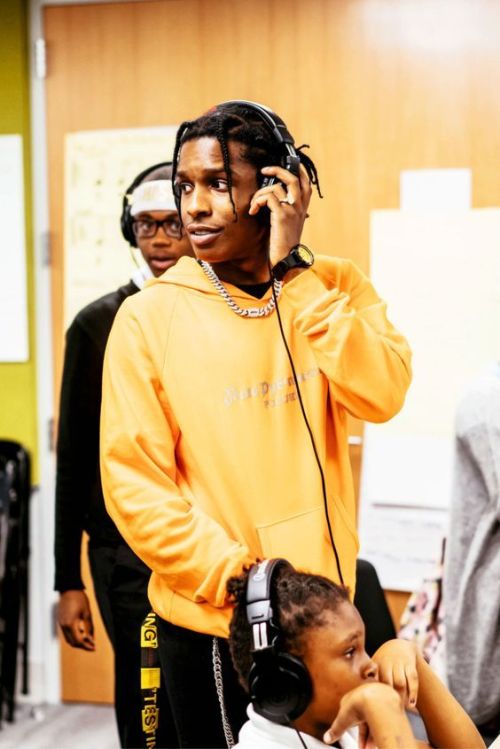#listening
Privileged people rarely take the voices of marginalized people seriously. Social justices spaces attempt to fix this with rules about how to respond to when marginalized people tell you that you’ve done something wrong. Like most formal descriptions of social skills, the rules don’t quite match reality. This is causing some problems that I think we could fix with a more honest conversation about how to respond to criticism.
The formal social justice rules say something like this:
- You should listen to marginalized people.
- When a marginalized person calls you out, don’t argue.
- Believe them, apologize, and don’t do it again.
- When you see others doing what you were called out for doing, call them out.
Those rules are a good approximation of some things, but they don’t actually work. It is impossible to follow them literally, in part because:
- Marginalized people are not a monolith.
- Marginalized people have the same range of opinions as privileged people.
- When two marginalized people tell you logically incompatible things, it is impossible to act on both sets of instructions.
- For instance, some women believe that abortion is a human right foundational human right for women. Some women believe that abortion is murder and an attack on women and girls.
- “Listen to women” doesn’t tell you who to believe, what policy to support, or how to talk about abortion.
- For instance, some women believe that religious rules about clothing liberate women from sexual objectification, other women believe that religious rules about clothing sexually objectify women.
- “Listen to women” doesn’t tell you what to believe about modesty rules.
- Narrowing it to “listen to women of minority faiths” doesn’t help, because women disagree about this within every faith.
- When “listen to marginalized people” means “adopt a particular position”, marginalized people are treated as rhetorical props rather than real people.
- Objectifying marginalized people does not create justice.
Since the rule is literally impossible to follow, no one is actually succeeding at following it. What usually ends up happening when people try is that:
- One opinion gets lifted up as “the position of marginalized people”
- Agreeing with that opinion is called “listen to marginalized people”
- Disagreeing with that opinion is called “talking over marginalized people”
- Marginalized people who disagree with that opinion are called out by privileged people for “talking over marginalized people”.
- This results in a lot of fights over who is the true voice of the marginalized people.
- We need an approach that is more conducive to real listening and learning.
This version of the rule also leaves us open to sabotage:
- There are a lot of people who don’t want us to be able to talk to each other and build effective coalitions.
- Some of them are using the language of call-outs to undermine everyone who emerges as an effective progressive leader.
- They say that they are marginalized people, and make up lies about leaders.
- Or they say things that are technically true, but taken out of context in deliberately misleading ways.
- The rules about shutting up and listening to marginalized people make it very difficult to contradict these lies and distortions.
- (Sometimes they really are members of the marginalized groups they claim to speak for. Sometimes they’re outright lying about who they are).
- (For instance, Russian intelligence agents have used social media to pretend to be marginalized Americans and spread lies about Hillary Clinton.)
The formal rule is also easily exploited by abusive people, along these lines:
- An abusive person convinces their victim that they are the voice of marginalized people.
- The abuser uses the rules about “when people tell you that you’re being oppressive, don’t argue” to control the victim.
- Whenever the victim tries to stand up for themself, the abuser tells the victim that they’re being oppressive.
- That can be a powerfully effective way to make victims in our communities feel that they have no right to resist abuse.
- This can also prevent victims from getting support in basic ways.
- Abusers can send victims into depression spirals by convincing them that everything that brings them pleasure is oppressive and immoral.
- The abuser may also isolate the victim by telling them that it would be oppressive for them to spend time with their friends and family, try to access victim services, or call the police.
- The abuser may also separate the victim from their community and natural allies by spreading baseless rumors about their supposed oppressive behavior. (Or threatening to do so).
- When there are rules against questioning call outs, there are also implicit rules against taking the side of a victim when the abuser uses the language of calling out.
- Rules that say some people should unconditionally defer to others are always dangerous.
The rule also lacks intersectionality:
- No one experiences every form of oppression or every form of privilege.
- Call-outs often involve people who are marginalized in different ways.
- Often, both sides in the conflict have a point.
- For instance, black men have male privilege and white women have white privilege.
- If a white woman calls a black man out for sexism and he responds by calling her out for racism (or vice versa), “listened to marginalized people” isn’t a very helpful rule because they’re both marginalized.
- These conversations tend to degenerate into an argument about which form of marginalization is most significant.
- This prevents people involved from actually listening to each other.
- In conflicts like this, it’s often the case that both sides have a legitimate point. (In ways that are often not immediately obvious.)
- We need to be able to work through these conflicts without expecting simplistic rules to resolve them in advance.
This rule also tends to prevent groups centered around one form of marginalized from coming to engage with other forms of marginalization:
- For instance, in some spaces, racism and sexism are known to be issues, but ableism is not.
- (This can occur in any combination. Eg: There are also spaces that get ableism and sexism but not racism, and spaces that get economic justice and racism but not antisemitism, or any number of other things.)
- When disabled people raise the issue of ableism in any context (social justice or otherwise), they’re likely to be shouted down and told that it’s not important.
- In social justice spaces, this shouting down is often done in the name of “listening to marginalized people”.
- For instance, disabled people may be told ‘you need to listen to marginalized people and de-center your issues’, carrying the implication that ableism is less important than other forms of oppression.
- (This happens to *every* marginalized group in some context or other.)
- If we want real intersectional solidarity, we need to have space for ongoing conflicts that are not simple to resolve.
Tl;dr “Shut up and listen to marginalized people” isn’t quite the right rule, because it objectifies marginalized people, leaves us open to sabotage, enables abuse, and prevents us from working through conflicts in a substantive way. We need to do better by each other, and start listening for real.
Essential Listening
Us and Them byPink Floyd fromDark Side of the Moon
No commentary. The music speaks for itself pretty well.
Essential Listening
ReckonerbyRadioheadfromIn Rainbows
One of the most musically-touching songs on what is already Radiohead’s most intimate and vulnerable album. For a group so famous for their callous musical narratives, this is a song to make you feel.
Need to chat?
7 Cups of Tea supports and promotes mental health and wellbeing!
Lots of free resources with great information and supportive focused communities
One of my favourite components is that there’s a personal growth tracker that can help you work towards improved mental, emotional, social and physical health
https://www.7cups.com/12837081
Post link
me on the outside:

me on the inside:

”Yes, I’d like to get to know you.
Tell me about yourself, what you like, what you dislike…tell me anything.
But please don’t expect me to ask a lot of questions.
I don’t want to make you feel uncomfortable.
And most importantly,
Don’t mistake my lack of questioning as lack of interest!”
Early reviews are in and … Wowowoowow!!!! … What’s your review ( so far ) and how far into it are you? And are you listening or reading ?? ….
Post link
Wrap-up Trident - Nuclear Disarmament demonstration in London
Canon 1dx - Sigma 50 1.4 Art
My favourite from the day…
Post link
Loosening up the connective tissue. Breaking up patterns. “Hydrating” the spine and joints. Awakening the muscles through somatic free flow. Moving outside of your patterns. Following the inner movements already imprinted in the fabric of the body. This class will be up later this week on my membership. Muscle release. Healing the joints. Sending my love #somaticmovement #unravelling #musclerelease #healing #oldpatterns #injuries #listening #intuitive
Reading
- The Sheltering Sky - Paul Bowles (1949)
- Bitch Planet vol 1 - DeConnick & Landro (2015)
- Bitch Planet issues 6 & 7 - DeConnick & Landro (2016)
- Paper Girls vol 1 - BKV (2016)
- Black Panther issue 1 - Ta-Nehisi Coates & Brian Stelfreeze (2016)
Television
- X-Files Seasons 3 & 4 - Chris Carter (1995)
- Fortitude - Simon Donald (2015)
- Veep Season 5 Episode 1 - Armando Ianucci (2016)
- Silicon Valley Season 3 Episode 1 - Mike Judge (2016)
Film
- 10 Cloverfield Lane - Dan Trachtenberg (2016)
- Midnight Special - Jeff Nichols (2016)
- Young Ones - Jake Paltrow (2015)
- The Force Awakens - JJ Abrams (2015)
- Casper - Brad Silberling & Phil Nibbelink (1995)
- Confirmation - Rick Famuyiwa (2016)
- Dirty Rotten Scoundrels - Frank Oz (1988)
- Lemonade - Beyonce & Co (2016)
Music
- Bleached - Welcome the Worms (2016)
- Twin Peaks - Wild Onion (2014)
- Frankie Cosmos - The Next Thing (2016)
- Beyonce - Lemonade (2016)
- Prince - Purple Rain (1984)
- Prince - Sign O’ The Times (1987)
- Prince - Lovesexy (1988)
- Prince - Controversy (1981)
- Prince - Prince (1979)
“Kosher App & Orthodox Ping Pong Star,” JITC Speaks Ep.3
Read more: http://jewinthecity.com/2014/11/kosher-app-orthodox-ping-pong-star-jitc-speaks-ep-3/#ixzz3IzsMGsCh
Post link
¡Hola a todos! Hello everyone!
(I didn’t post a video last week! Sorry!!!)
But I’m sharing with you some Spanish speaking youtubers, so you can start practicing your listening skills! :D
I chose these youtubers because, aside from being entertaining, they don’t say a lot of bad words and swearwords as other youtubers, which I personally don’t find attractive or funny; and I don’t think it works for your Spanish learning. Of course you’ll hear a lot of swearwords in Spanish speaking countries, and most of these youtubers use them, but in my opinion, in a more moderate way (and also because if they swear a lot they don’t get money).

HolaSoyGerman.[Chile; +31,700,000 subscribers] With just 137 videos, he’s the most watched Spanish speaking youtuber. He’s funny and his videos are very simple, and he’s very charismatic. Now he’s not very active in this channel, but he has another one where he plays videogames, here it is: JuegaGerman
Warning! He speaks really fast, even for native Spanish speakers. So, don’t get discouraged if you don’t understand at first, you will eventually (I believe in you!)

elrubiusOMG [España; +24,400,000 subscribers] He’s the most popular gamer in the Spanish speaking community. His channel is basically about gameplays, but he also makes some other videos where he trolls people, plays pranks, or travels.

Yuya [México; +18,300,000 subscribers] She’s the most popular youtuber from México. She makes DIY’s, make up tutorials, dessert recipes and so on. She has a very peculiar voice, and a very cute way of speaking.

enchufetv [Ecuador; +14,100,000 subscribers] This is a group of people that make short videos. They’re very creative and funny. They make parodies about real life and modern times situations.

Luisito Comunica [México; +5,800,000 subscribers] He’s always traveling, trying new things and asking people for their opinion on several topics. His videos are very interesting and entertaining.

YellowMellowMG [España; +1,500,000 subscribers] She’s very outgoing, interesting and funny. Her channel is mostly about personal opinions and experiences.

Gonzok [México; +630,000 subscribers] He’s a less popular youtuber, but in my opinion he makes really good videos, very well edited and he’s very funny. He makes the typical “Kinds of people” videos. He says that the key to be happy in life is to subscribe to his channel, maybe you can try it! :)

superholly [USA; +450,000 subscribers] She’s from the United States but has lived in México for a long time. She’s fluent in Spanish, she could be Mexican, I thought she was Mexican.
She makes each one of her videos in English and Spanish, so maybe you can first watch her video in Spanish and then watch the video in English and see how much you understood.

CuriosaMente[México; +380,000 subscribers] These are educational animated videos that talk about science, history and culture. These videos are interesting and the narrator speaks very clear.

Inna Moll [Chile; +320,000 subscribers] Within her first month uploading videos in Youtube she reached 100,000 subscribers! it seems that everybody is loving her. She’s a model from Chile, and her channel is basically about her trips and personal life.
Do you have any favorite Spanish speaking youtuber? Share it with us! :)
Created: April 27th
Updated: June 1st
Post link
Mood











![Mind Map #41: [The ways that we show that we care] www.facebook.com/thisfoldedmind Mind Map #41: [The ways that we show that we care] www.facebook.com/thisfoldedmind](https://64.media.tumblr.com/tumblr_mdcqepgc4H1ru4tgjo1_500.jpg)





